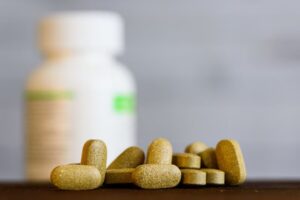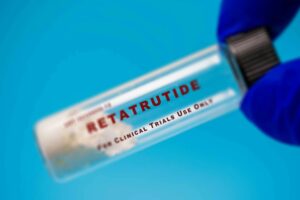Many people experience weight gain even when they are eating well and exercising consistently. If this sounds familiar, hormones—specifically testosterone—may be the hidden factor. Low testosterone can make fat loss more difficult, reduce energy levels, and even impact long-term health if left unchecked.
How Low Testosterone Can Go Unnoticed
One challenge with hormone health is that symptoms aren’t always obvious. Someone may feel generally fine while unknowingly struggling with testosterone levels that are far below where they should be. In fact, some people only discover the issue after realizing that their training results or fat loss progress don’t match their effort.
Testosterone naturally declines with age, but younger individuals can also experience low levels due to lifestyle, diet, stress, and environmental factors. A “normal” reading doesn’t always mean optimal—what matters most is your personal baseline.
Why Baseline Testing Matters
Getting testosterone checked early can provide valuable data for the future. For example, a 24-year-old with a level of 900 will have a clear comparison point if their numbers drop to 375 at age 40. Without that baseline, many people are told they are still in the “normal range,” even if their personal levels have been cut in half.
That difference can explain why someone suddenly gains fat, feels tired, or struggles to maintain muscle mass despite keeping the same diet and training routine.
Benefits of Testosterone Replacement Therapy (TRT)
When medically prescribed and monitored, testosterone replacement therapy can restore hormone levels to a healthy range. Reported benefits include:
- Improved fat loss and lean muscle retention
- Higher energy and reduced brain fog
- Better nutrient utilization and metabolic efficiency
- Reduced risk factors for heart disease and diabetes
TRT is not the same as anabolic steroid abuse. The goal is not extreme enhancement but rather restoring balance under the supervision of a physician. Proper dosing, bloodwork monitoring, and lifestyle choices all play a role in ensuring safety and effectiveness.
Risks of Overuse and Misuse
While TRT can be life-changing, taking more than prescribed is dangerous. Excessive testosterone can lead to heart issues, hormone imbalances, and other health complications. Some people assume higher doses mean better results, but beyond a certain point, benefits plateau and risks increase. This is why medical supervision is essential.
Supporting Hormone Health Naturally
Even without treatment, certain choices can support healthier testosterone levels. Maintaining a clean diet, reducing body fat, exercising intensely, and getting sufficient protein all make a difference. Supplements such as boron have also been noted to positively influence free testosterone in some cases, though results vary by individual.
Final Thoughts
If you are gaining weight despite consistent healthy habits, hormone imbalance may be the missing piece of the puzzle. Getting your testosterone levels checked can provide clarity and open the door to solutions that improve both health and quality of life. When approached responsibly, balancing hormones is not about chasing unrealistic results—it’s about restoring the body to where it should be.
Video Summary
To learn more about nutrition, fitness, and health from professionals and experts, visit our channel and subscribe: https://www.youtube.com/@Vitality-and-Wellness
Disclaimer: This article is for informational purposes only and should not be taken as medical advice. Always consult a qualified healthcare provider before starting or changing any treatment.



